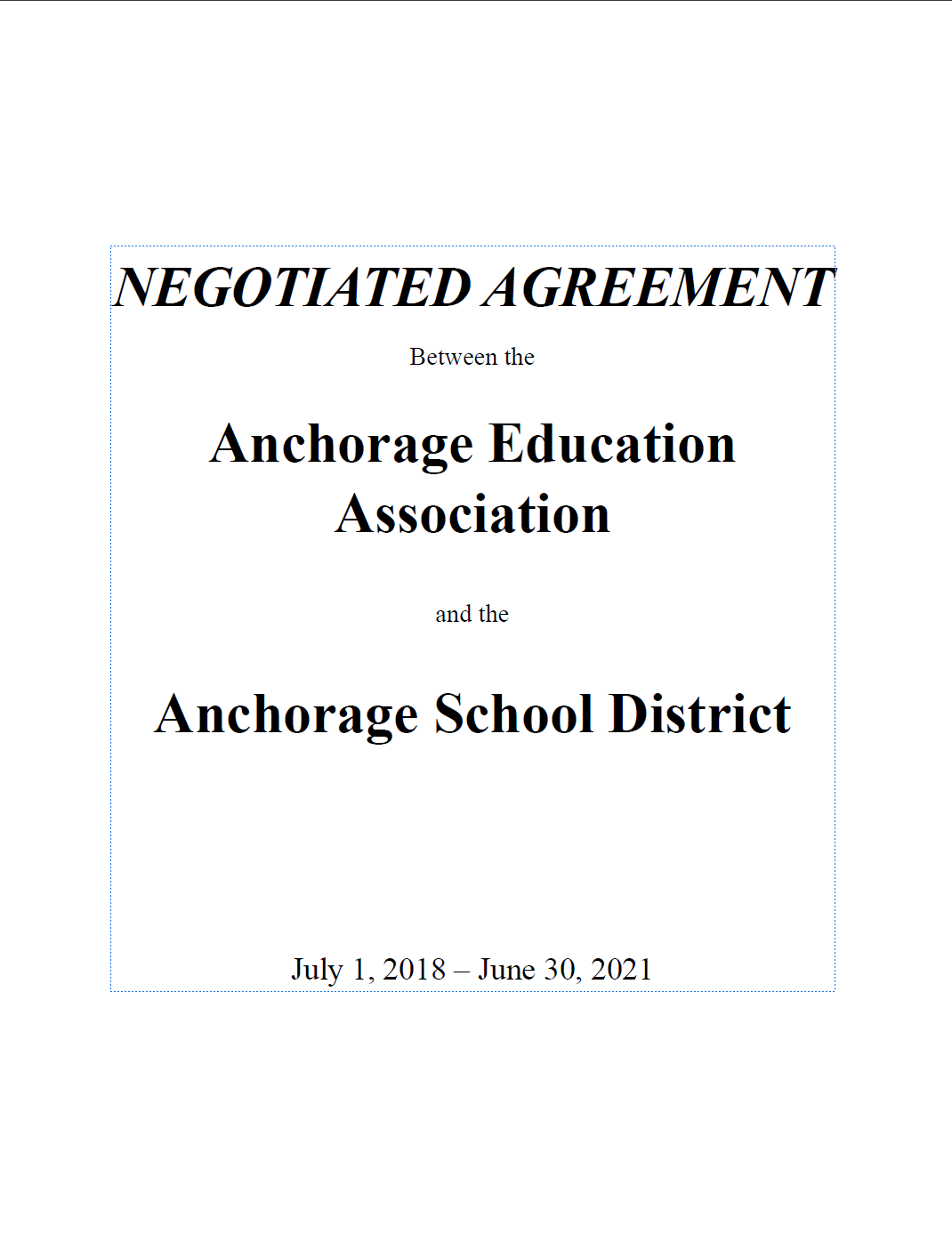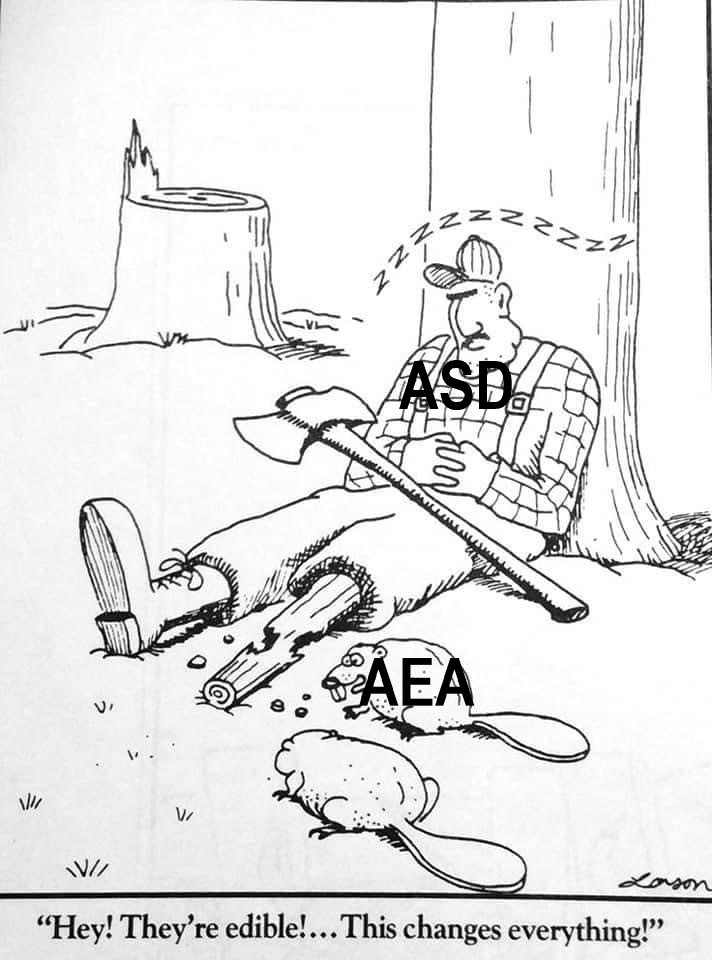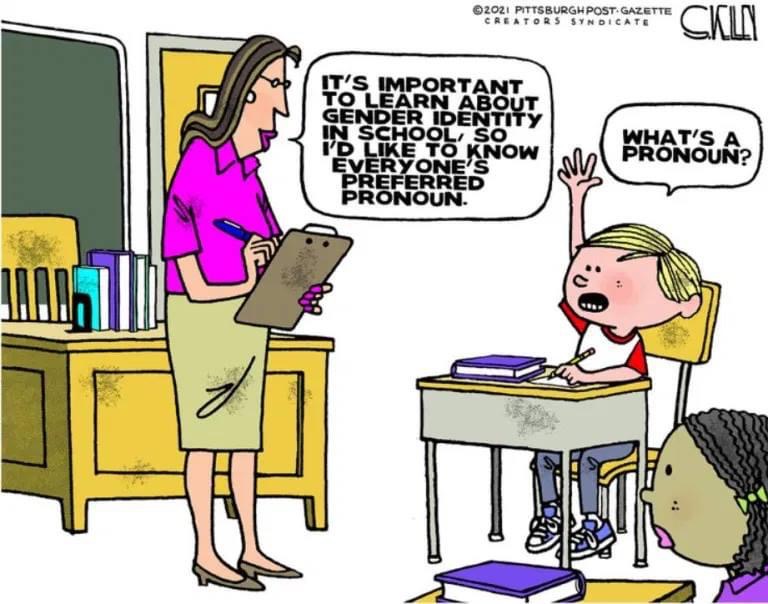The Conspiracy against $Alaska Public Education$
As residents of Anchorage revel in the coming of summer–and everybody is living the dream after a long winter–negotiating teams for the Anchorage Education Association-NEA (AEA) and the Anchorage School District (ASD) are expected to soon present a Collective Bargaining Agreement (CBA) for a vote by union members.
The current contract expires June 30, 2021.
 |
| https://static1.squarespace.com/static/579155d62994ca228042f673/t/5bef25ae4d7a9cbab8f5601c/1542399410443/2018+AEAASD+Tentative+Agreement.pdf
|
Parents need to be aware of how this impacts their children’s public education.
Let’s begin with the understanding that this CBA has traditionally been a conspiracy pact for plunder. The teacher union–NEA, NEA-Alaska, AEA–don’t give a damn about public education. Their only goal is to extract as much financial reward for members from the local/state government employers as
possible. All members pay the same amount of dues and poor teachers are protected at the same level as great teachers under the legal Duty of Fair Representation.[1]
Academic outcomes prove this point. Children in public education are hostages.
Organized political action efforts (NEA-PACE) assure financial and organizational support of elected officials who will decide whether to accept terms of a new CBA. By taking money and endorsement from AEA, elected
officials are beholden to the organization that contributed to getting them elected–every local government official who accepts campaign contributions from NEA-Alaska, AEA is a party to this conspiracy. Negotiations are simply theater for the uninformed who don’t understand the union has representation on both sides of the bargaining table.
Mamas and Papas who love their kids’ teachers provide cover for the crime. Many of these parents are themselves a product of ASD.
By contrast, ASD teachers who assertively choose to NOT be members of AEA cannot vote on the agreement, because the parties of this conspiracy assert that AEA is the exclusive bargaining agent for all teachers in the workplace. They agree to this in specific contract language.[2] Those who refuse to join the union are derisively called “free-loaders” and must file a challenge to their required membership and receive a pittance “refund” for the part of dues designated in annual court appearances as related to political action. This is all a big game for the union because virtually everything the union does is political action. EVERYTHING.
I know this first-hand as an employee of NEA-Alaska in the Juneau Headquarters office nine years between the mid-1980s and mid-1990s, at a time when we galvanized union power by presenting and advocating for ever-increasing education budgets and various union empowering legislation that became law, including the right of government teachers to strike after advisory arbitration.[3]
 |
| The view of the Alaska Capitol and Dimond Court Building from in front of the NEA-Alaska fortress, Funding for Alaska Public Education has been enriching for the largest teacher union in the state. |
In recent years the requirement for real teachers to not have to be members of the Union Mob has changed. A June 27, 2018 US Supreme Court decision, Janus v. American Federation of State, County, and Municipal Employees, Council 31, et al. changed all of this at the national level. So far most of Alaska’s 50+ school districts participating in this conspiracy have denied the legal action ever happened in successor agreements. We will see whether co-conspirators ASD/AEA again offer contract language in violation of federal law in the upcoming proposed successor contract.
The Janus Decision
This legal action was initiated against the State of Illinois, where state law permitted a majority of public employees in the workplace to vote to be members of a union and designates that specific union as the exclusive representative of all employees in the class. This is also past practice in Alaska, mandating membership in the AFSCME or NEA affiliate unions as a condition of employment for government workers. I am very familiar with this expectation as I am also a former business agent for ASEA/AFSCME Local 52 in Juneau more than four years. This contract language has long been a bully tactic which State of Alaska management enforces—even serving as bagman for the mob—to extort dues from every member, which are forwarded to the union in a fat monthly check.
From the Janus Decision:
Petitioner Mark Janus is a state employee whose unit is represented by a public-sector union (Union), one of the respondents. He refused to join the Union because he opposes many of its positions, including those taken in collective bargaining. Illinois’ Governor, similarly, opposed to many of these positions, filed suit challenging the consti-tutionality of the state law authorizing agency fees. The state attorney general, another respondent, intervened to defend the law, while Janus moved to intervene on the Governor’s side. The District Court dismissed the Governor’s challenge for lack of standing, but it simultaneously allowed Janus to file his own complaint challenging the constitutionality of agency fees.
One courageous public employee took on the union mob. His case went all the way to the US Supreme Court and he won. Here are some relevant excerpts from that majority decision every parent with kids in public education should know:
JUSTICE ALITO delivered the opinion of the Court.
Under Illinois law, public employees are forced to subsidize a union, even if they choose not to join and strongly object to the positions the union takes in collective bargaining and related activities. We conclude that this arrangement violates the free speech rights of nonmembers by compelling them to subsidize private speech on matters of substantial public concern.
Rationale for this position is explained throughout the decision:
Designating a union as the employees’ exclusive representative substantially restricts the rights of individual employees. Among other things, this designation means that individual employees may not be represented by any agent other than the designated union; nor may individual employees negotiate directly with their employer.
Government employees working as teachers represented by a union are forced to go along to get along. The court in this decision made specific reference to the obligation of public employee teachers who influence thinking of children in our communities:
Take the example of education, which was the focus of briefing and argument in Friedrichs.[3] The public importance of subsidized union speech is especially apparent in this field, since educators make up by far the largest category of state and local government employees, and education is typically the largest component of state and local government expenditures. Speech in this area also touches on fundamental questions of education policy. Should teacher pay be based on seniority, the better to retain experienced teachers? Or should schools adopt merit-pay systems to encourage teachers to get the best results out of their students? Should districts transfer more experienced teachers to the lower performing schools that may have the greatest need for their skills, or should those teachers be allowed to stay where they have put down roots?
Should teachers be given tenure protection and, if so, under what conditions? On what grounds and pursuant to what procedures should teachers be subject to discipline or dismissal? How should teacher performance and student progress be measured—by standardized tests or other means? Unions can also speak out in collective bargaining on controversial subjects such as climate change, the Confederacy, sexual orientation and gender identity, evolution, and minority religions. These are sensitive political topics, and they are undoubtedly matters of profound “‘value and concern to the public.’” Snyder v. Phelps, 562 U. S. 443, 453 (2011). We have often recognized that such speech “‘occupies the highest rung of the hierarchy of First Amendment values’” and merits “‘special protection.’”
To be a teacher requires an ability to see things as they really are and freely express views based on those observations unobstructed by groupthink and bully behaviors. The dynamic of forcing teachers under the fist of union coercion, requiring payment of agency fees for non-members and silencing individual free speech, was originally established in a 1977. The case is known as D. Louis ABOOD et al., Appellants, v. DETROIT BOARD OF EDUCATION et al., which was overturned by Janus.[4]
In its majority Janus decision the court said:
We recognize that the loss of payments from nonmembers may cause unions to experience unpleasant transition costs in the short term, and may require unions to make adjustments in order to attract and retain members. But we must weigh these disadvantages against the considerable windfall that unions have received under Abood for the past 41 years. It is hard to estimate how many billions of dollars have been taken from nonmembers and transferred to public-sector unions in violation of the First Amendment. Those unconstitutional exactions cannot be allowed to continue indefinitely… Neither an agency fee nor any other payment to the union may be deducted from a nonmember’s wages, nor may any other attempt be made to collect such a payment, unless the employee affirmatively consents to pay. By agreeing to pay, nonmembers are waiving their First Amendment rights, and such a waiver cannot be presumed.
Under federal law, therefore, any public employee must be afforded the right to opt-in to union membership and required dues. The employer cannot continue to be the bagman for the union or to require employees to join a union that usurps their freedom of speech under the US Constitution.
This is the law of the land and to deny it is a criminal act. Under the Supreme Courts’ Janus decision teachers are not required to join the union to keep their jobs. The union/ASD must allow for an “opt-in” requirement to join the union versus an “opt-out” to leave the union.
What does this mean for Parents of school aged children?
Soon we will learn what co-conspirators ASD/AEA have cooked up for the new CBA and your kids’ teachers who choose to be members of the union will be asked to vote on it. If the contract is ratified, it will go to the ASD Board of Education for ratification. If it continues to include language in violation of the Janus Decision the members who voted for it and the school board that adopted it are willing co-conspirators breaking federal law.
If you have ever felt your voice doesn’t matter as you see ASD decide what is good for your family based on the vote of a union-controlled school board, this is a time you can make a difference. Start by asking your child’s teacher outright if they are a member of the teacher union.
If they are, ask yourself: “Is that the kind of teacher your child deserves?” When you have a concern about what is being taught to your kids–about the indoctrination curriculum and the meaningless distractions from academic pursuits–do you expect your voice to be heard? If your own kids’ teachers have given up their own voice to the mob, how do you think they they will regard YOUR voice?
If your child’s teacher(s) are members of any NEA affiliate, in any district in the state, demand they be moved to another teacher. To be a teacher member of a union is a choice. Teachers don’t have to be sheep anymore.
References:
[1] Labor Law: Duty of Fair Representation
The duty of fair representation is incumbent upon U.S. labor unions that are the exclusive bargaining representative of workers in a particular group. It is the obligation to represent all employees fairly, in good faith, and without discrimination. Originally recognized by the United States Supreme Court in a series of cases in the mid-1940s involving racial discrimination by railway workers’ unions covered by the Railway Labor Act, the duty of fair representation also applies to workers covered by the National Labor Relations Act and, depending on the terms of the statute, to public sector workers covered by state and local laws regulating labor relations.
https://en.wikipedia.org/wiki/Duty_of_fair_representation
[2]Language from the current ASD/AEA Collective Bargaining Agreement
600 SERIES – AGREEMENT CONDITIONS
601 RECOGNITION
The Association is the exclusive collective bargaining agent for teachers/members, as defined by the agreement, and all rights contained herein shall be guaranteed to the Association and to no other competing labor organization.
The Association is recognized, for the purpose of this agreement, to represent certificated employees including the following job classifications: classroom teachers; counselors; nurses; occupational therapists; physical therapists; speech language pathologists; audiologists; librarians; teaching specialists; itinerant music, art and resource teachers; psychologists and teacher experts. The previous job classifications constitute the bargaining unit members. Disputes over representation of certificated employees in other job classifications may be submitted to the Alaska Labor Relations Agency. Positions represented by the Association shall not be
assigned to another bargaining unit without the approval of the Association.
[3] SB 15, Jim Duncan, passed the Alaska Legislature in 1990 putting all government teachers under the Public Employee Relations Act with right to strike after advisory arbitration.
[4]Janus v. State, County, and Municipal Employees – Supreme Court https://www.supremecourt.gov/opinions/17pdf/16-1466_2b3j.pdf
[5] Friedrichs v. California Teachers Assn., 576 U. S. Friedrichs, et al. v. California Teachers Association, et. Al.
Issues
Do unions violate public employees’ First Amendment rights through public sector “agency shop” arrangements or by requiring them to affirmatively object to subsidizing public sector union nonchargeable speech?
https://www.law.cornell.edu/supct/cert/14-915
[6] D. Louis ABOOD et al., Appellants, v. DETROIT BOARD OF EDUCATION et al.
A Michigan statute authorizing union representation of local governmental employees permits an “agency shop” arrangement, whereby every employee represented by a union, even though not a union member, must pay to the union, as a condition of employment,
a service charge equal in amount to union dues.
https://www.law.cornell.edu/supremecourt/text/431/209






